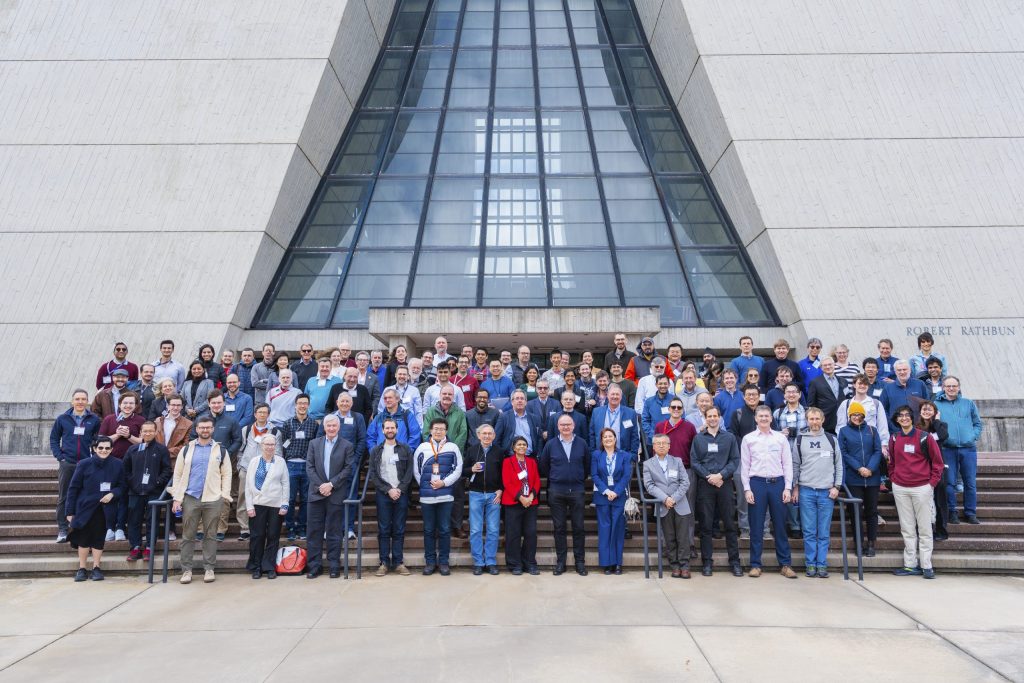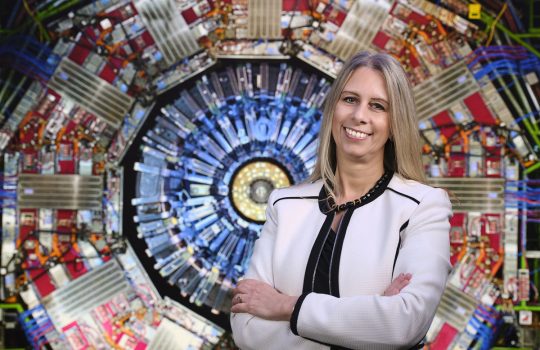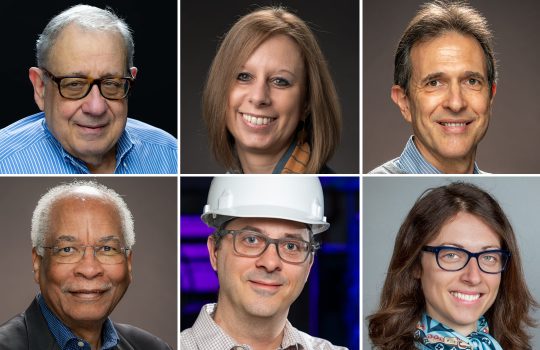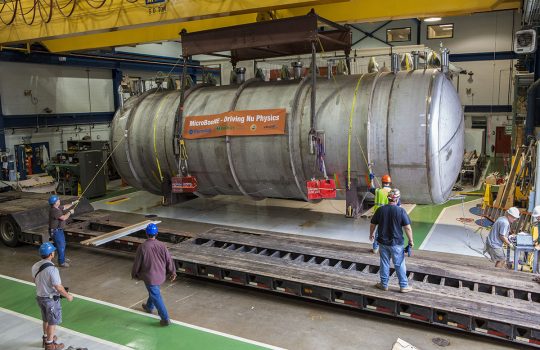About 200 physicists and engineers, including more than 50 students and postdoctoral researchers, attended the U.S. Higgs Factory – Future Circular Collider workshop at the Department of Energy’s Fermi National Accelerator Laboratory in April.
The event, co-hosted by Fermilab and Argonne National Laboratory, focused on the recently released Future Circular Collider Feasibility Study and brought together the U.S. particle physics community to engage with Europe’s vision for the successor to CERN’s Large Hadron Collider.
The feasibility study represents the combined input from a collaboration of 150 institutions across 30 countries and outlines a two-stage program: building an electron-positron collider, known as FCC-ee for short, to mass produce Higgs bosons for study, followed by construction of a high-energy hadron circular collider, or FCC-hh, which could lead to direct discovery of unknown particles and understanding of the nature of dark matter.

Since discovering the Higgs boson in 2012, scientists have been studying its properties at the LHC and planning future facilities to further study this fundamental particle associated with the energy field that gives mass to other particles in our universe.
Early in 2026, the European particle physics community is expected to recommend the construction of the FCC-ee Higgs factory at CERN. If approved and funded, the experimental collaborations would be launched by 2028, with physics operations projected to begin by 2045.
The workshop at Fermilab included key contributions from early-career scientists, and Fermilab postdoctoral researchers Irene Dutta and Grace Cummings played central roles in organizing the workshop.
“The project promises to provide the next generation of researchers with an exceptional training ground, where hands-on experience with new detector technologies, advanced data analysis and innovative theoretical techniques will build on the current knowledge and expertise in particle accelerators,” said Dutta. “It will strengthen our long-standing collaboration with CERN and help us push the frontiers of precision electroweak physics.”
Cummings emphasized the value of this international partnership for the future of particle physics and for early-career scientists.
“This workshop made it clear that the skills and international relationships early-career researchers have built and enjoyed with the Large Hadron Collider can grow with the FCC-ee,” Cummings said. “The FCC-ee offers a physics environment unfamiliar to those of us born and raised in the era of hadron collider supremacy, and a unique opportunity to learn a new flavor of instrumentation.”
Participants at the workshop explored detector technologies, accelerator design, physics analysis, software development and community engagement, contributing their expertise toward shaping the FCC-ee’s program. Fermilab, building on its long tradition of collider science, stands to play a major role within the international collaboration, and also as a center for a U.S.-based particle physics research community.
Artur Apresyan, a scientist at Fermilab and one of the organizers, emphasized the program’s importance.
“The FCC-ee will offer a unique opportunity to study the Higgs boson and the electroweak sector with unprecedented precision and discovery potential,” said Apresyan. “It is the most consequential particle physics experimental program viable before the mid-21st century with a path to a high-energy hadron machine, the FCC-hh, to explore the next energy frontier.”
Fermi National Accelerator Laboratory is America’s premier national laboratory for particle physics and accelerator research. Fermi Forward Discovery Group manages Fermilab for the U.S. Department of Energy Office of Science. Visit Fermilab’s website at www.fnal.gov and follow us on social media.



